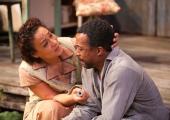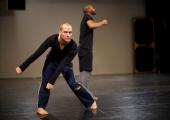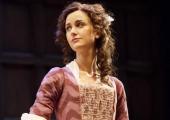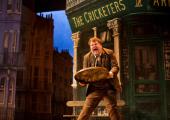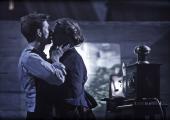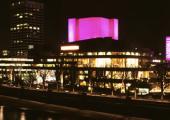Misterman, National Theatre
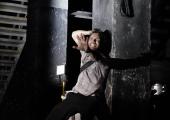
Enda Walsh’s play about religious mania is a tour de force for actor Cillian Murphy
Religious mania is bad for your love life. In Enda Walsh’s revamped 1999 play — which has already been seen in Galway and New York, and opened in London last night — a 33-year-old man (played with immense conviction and enormous presence by Cillian Murphy) invites us inside his mind to explore the dark and dangerous caverns of religious enthusiasm and psychological collapse. Be warned: it is a strange, tormented and rather weird trip.

